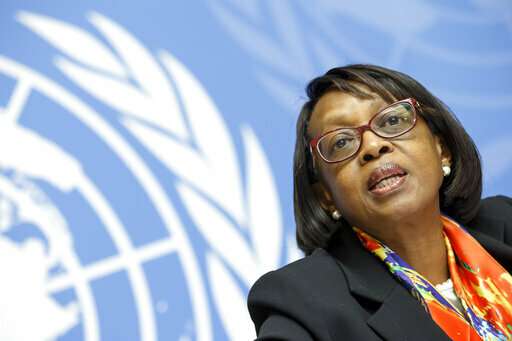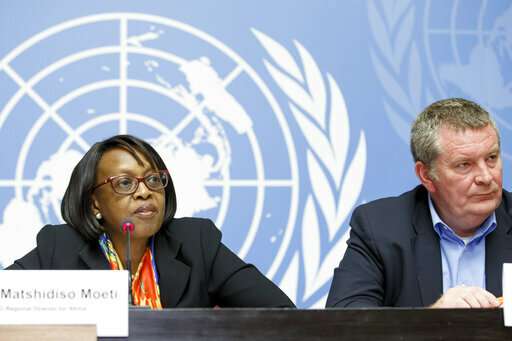Matshidiso Moeti, World Health Organization (WHO) Regional Director for Africa, informs the media about an update on WHO Ebola operations in the Democratic Republic of the Congo (DRC) during a press conference, at the European headquarters of the United Nations in Geneva, Switzerland, Friday, Feb. 1, 2019. (Salvatore Di Nolfi/Keystone via AP)
The deadly Ebola outbreak in eastern Congo is marking six months with officials noting a worrying number of confirmed cases linked to health centers.
Such infections are seen as a major problem that highlights poor practices and the risk of spread among patients and workers. Combined with community resistance in an unstable, densely populated region that has never faced Ebola before, the task of containing the outbreak remains challenging.
In the current epicenter, the communities of Butembo and Katwa, 86 percent of Ebola cases since Dec. 1 "had visited or worked in a health care facility before or after their onset of illness," the World Health Organization says.
With 759 Ebola cases, including 705 of them confirmed and 414 confirmed deaths, this has become the second-largest Ebola outbreak in history.
Matshidiso Moeti, left, World Health Organization (WHO) Regional Director for Africa, sitting next to Mike Ryan, right, WHO Assistant Director-General for Emergencies, informs to the media about of update on WHO Ebola operations in the Democratic Republic of the Congo (DRC) during a press conference, at the European headquarters of the United Nations in Geneva, Switzerland, Friday, Feb. 1, 2019. (Salvatore Di Nolfi/Keystone via AP)
© 2019 The Associated Press. All rights reserved.





















